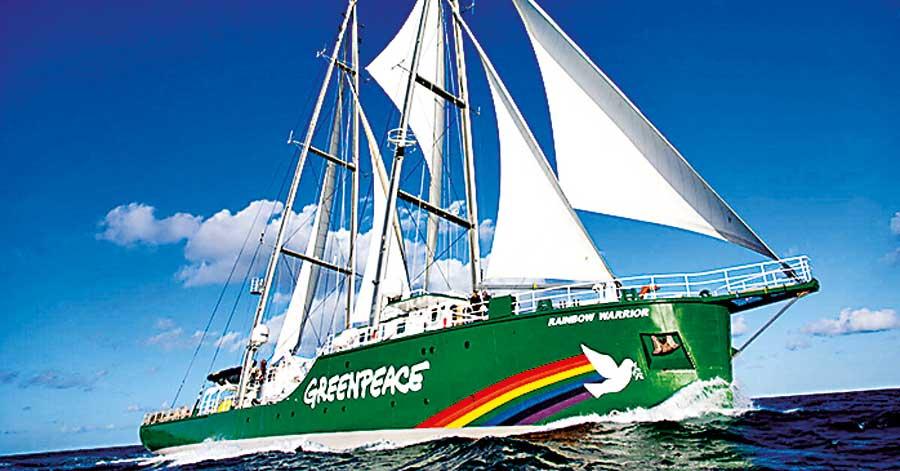Reply To:
Name - Reply Comment

- Launches South Asia Office in Colombo
- Occasion marked by the arrival of the iconic vessel Rainbow Warrior
Greenpeace launched its South Asia regional office in Colombo yesterday with arrival of the iconic ship Rainbow Warrior, marking the beginning of the highly anticipated ‘People For Climate - Greenpeace Indian Ocean Ship Tour 2024’.
The opening ceremony was graced by key guests, including influencers, youth groups, authorities, celebrities and allies who joined Greenpeace in its mission to tackle climate change.
“Here in Sri Lanka, we’re experiencing an environmental crisis, with climate change disrupting our agriculture and livelihoods.
Despite our minimal role in contributing to climate change, as a biodiversity hotspot in Southern Asia, we’re disproportionately impacted.
“It’s imperative for us, alongside Greenpeace South Asia and other local environmental movements, to advocate for a dedicated climate change foundation in Sri Lanka.” said Jehan CanagaRetna, Environmentalist and Greenpeace South Asia board member
Over a billion and a half people live in the South Asian region comprising 8 different countries which are home to some of the most ecologically sensitive regions in the world. Additionally data shows that the region has the second largest share of the global poor.
The multidimensional poverty, dependency on natural resources and weather patterns are just some of the reasons that makes the population of this region particularly vulnerable to the instability that comes with the climate crisis. According to a World Bank report over 800 million South Asians are living in future climate change hotspots, meaning these regions can get increasingly unliveable.
Binu Jacob, Executive Director, Greenpeace South Asia/India noted that while some have contributed to accelerating climate change more than others, large parts of the population especially in the global south, including the South Asian region are bearing a disproportionately larger brunt of its impacts.
“Today it is imperative that every single government, corporation and individual act as a stakeholder in this movement, as this is a very personal cause for each and every one of us. As people of the South Asian region it is especially important we are not weighed down by the complexity of geo-politics and acknowledge the need to speak as one collective voice,” said Amruta SN, Campaigner, Greenpeace South Asia/India.
Greenpeace South Asia is an attempt at creating one such common platform that can bring together voices from different parts of the South Asian region.
Greenpeace will continue its comprehensive program of events until the 18th of February, engaging with local communities, youth representatives, policymakers, stakeholders, social media influencers, media, educational institutions, donors, volunteers, and supporters. Together, they intend to work towards collective efforts in addressing issues such as climate change, pollution, and the preservation of marine biodiversity from the perspective of the South Asian region.